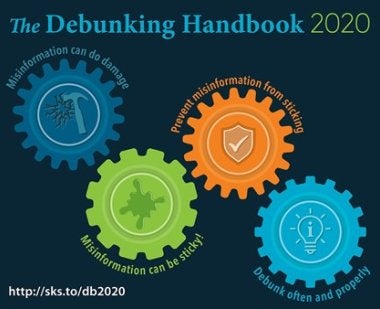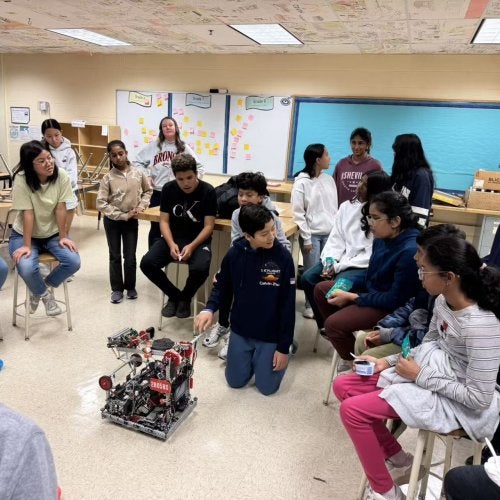

Debunking Handbook 2020: Countering Misinformation
Today's society is overwhelmed with misinformation, and technology has only made it easier to spread. Undoing misinformation is difficult, so the best way to combat the spread is to equip people with the tools they need to distinguish the true from the not-so-true.

Lead author, Professor Stephan Lewandowsky, Chair in Cognitive Science in the School of Psychological Science at the University of Bristol, explains: “Society is drenched in misinformation, which can range from inadvertent inaccurate reporting to deliberate dissemination of outlandish conspiracy theories for political ends.
“Social media has created a world in which traditional gate-keepers are largely absent, which allows misinformation to spread farther and faster online than ever before, and it is becoming increasingly difficult for the public to sift information that is accurate from false or misleading information.
“The handbook is a consensus document that was created by an innovative process that involved a series of predefined steps, all of which were followed and documented and are publicly available. The authors were invited based on their scientific status in the field, and they all agreed on all points made in the handbook. We therefore believe that the new Handbook reflects the scientific consensus about how to combat misinformation.”
The Debunking Handbook 2020 was written by a team of 22 prominent scholars for engaged citizens, policy makers, journalists, and other practitioners. Among the scholars is University of Maryland College of Education’s Dr. Doug Lombardi, associate professor in the Department of Human Development & Quantitative Methodology.
Dr. Lombardi investigates how to get students to think scientifically in a fast-evolving world. For the Debunking Handbook, he drew from his research focuses on teaching tools and strategies that support middle, high school and undergraduate students in critically evaluating different perspectives of socio-scientific problems and developing an evidence-based solution. One of his recent projects is a $2.5M grant from the National Science Foundation that helps students assess and evaluate lines of evidence related to the causes of climate change, in order to develop scientifically-literate citizens.
“In today’s information maelstrom, people struggle to determine scientific truthfulness. Debunking 2020 offers help, equipping readers with critical-analytical tools to fight weaponized information,” says Dr. Lombardi, a co-author on the handbook.
The Debunking Handbook is available at sks.to/db2020.


